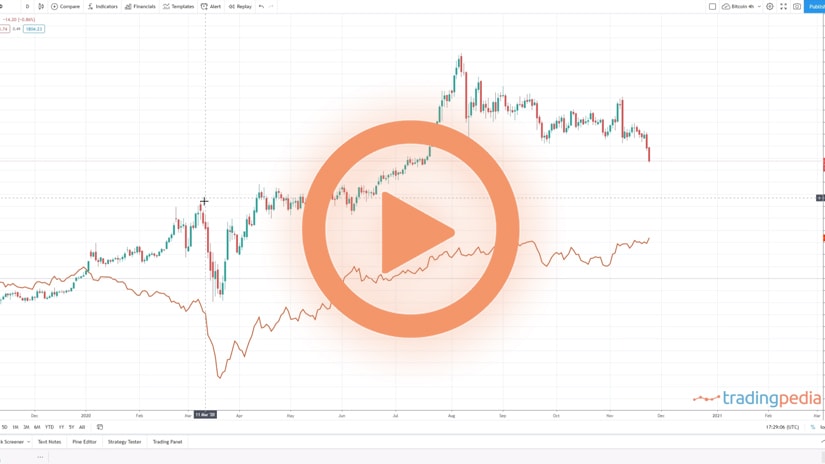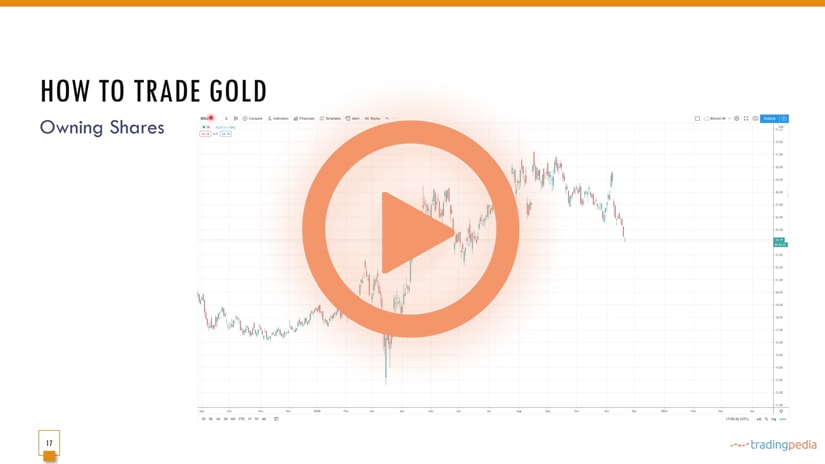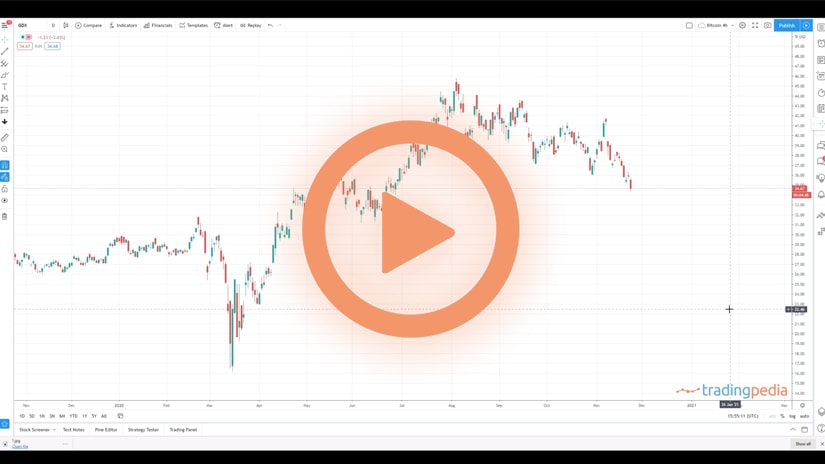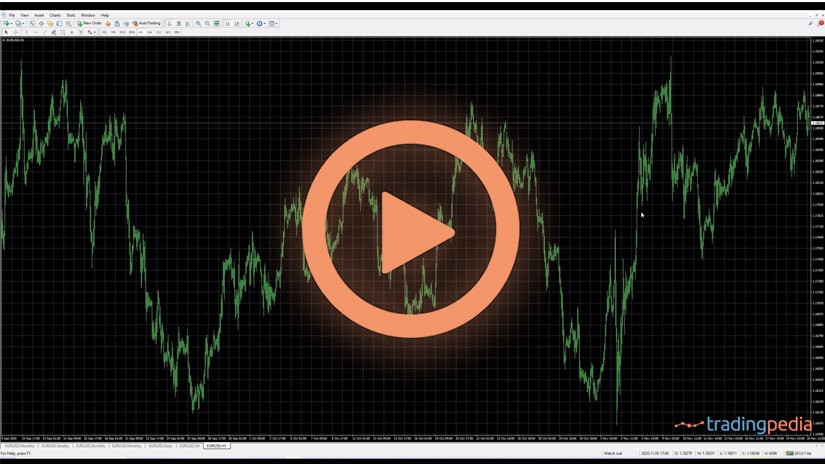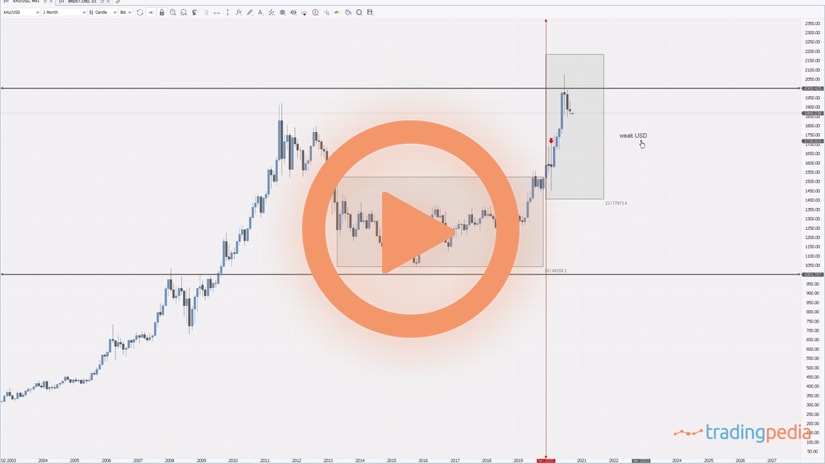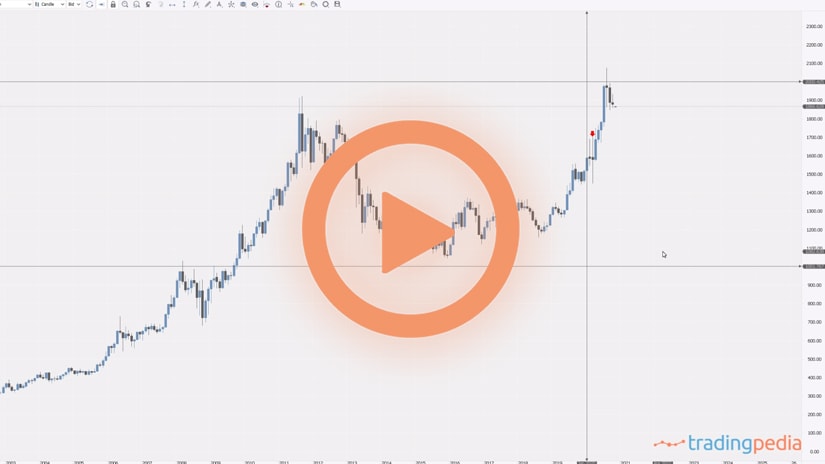
Hello there, this is tradingpedia.com. We move on with a new video dedicated to traded gold after we covered the correlations to consider in the previous video.
Overview
The gold/silver ratio is one of the most important one, Bitcoin is viewed as the new digital alternative investment, etc. During the 2020 pandemic we saw gold and Bitcoin moving in a tight correlation, all to the point when positive vaccine news came to market. From that moment on, investors shifted from gold to traditional investment assets.
This is true on many correlations as they are valid until they are not anymore. However, some of them stood the test of time, as it is the case with the gold/silver ratio.
How about demand for gold? Who buys gold? Why would you own gold?
Asia
Well, Asia is the biggest gold consumption area in the world. If you think of Asia in the 21st century, most of the world’s population leaves there, the birth rate is one of the highest in the world, Asia dealt very well with the pandemic – are just a few factors for strong economic growth and strong gold demand.
The Indian and Chinese households are determinants for oil demand as they consume a lot of gold both from a cultural aspect and from a hedge against inflation perspective. These are price sensitive markets, and many investors consider the weddings season in India, for example, as a possible trigger of a change in the price of gold.
Central Banks
Demand for gold comes also from central banks – this is the ECB in Frankfurt, Germany. All central banks continue to have gold reserves, despite the fact that the gold standard disappeared since the 1970s.
Central banks, however, continue to pile on gold, especially People’s Bank of China (PBoC). As all things China, one cannot be sure about the information available to the public, but we do know that it is buying gold. Russia and Turkey do as well, while Fed, ECB and BOE own gold too.
When some central banks reduce their gold reserves in the vault of the BOE, no one takes the gold out of the vault. The BOE simply changes the labels on the gold and therefore the ownership is changed. So, demand for gold comes on the one hand from households, especially Asian countries, but also from central banks and the investing community.
Related Videos
Gold Storage Opportunities
We cannot end this series without discussing gold storage opportunities around the world. One way of owning gold is to own exposure to gold companies, or ETFs, etc. But also another possibility is to actually own the physical stuff, so gold storage is a big issue around the world. People go to extreme lengths, and this is quite a curious thing, to dig up the gold from underground, and then, after it is being processed, etc., it is being put back into the ground.
Places to consider storing gold. One is New Zealand. Another is Australia, as a huge producer and it has excellent places to store gold securely. Australian institutions are strong and trustworthy, founded on the traditions of Britain’s common law. The scale of the gold business in Australia requires a unique infrastructure and so Australia is a competitive marketplace. It has over 80 gold bullion traders offering facilities to buy, trade, and to vault.
Last but not least – Dubai, the city of gold. Here, gold has a crucial historical significance in that culture too. Therefore, think of not only the traditional demand for gold, but also owning, trading, and storing gold around the world.
Stay tunned for the last video – bye, bye.
